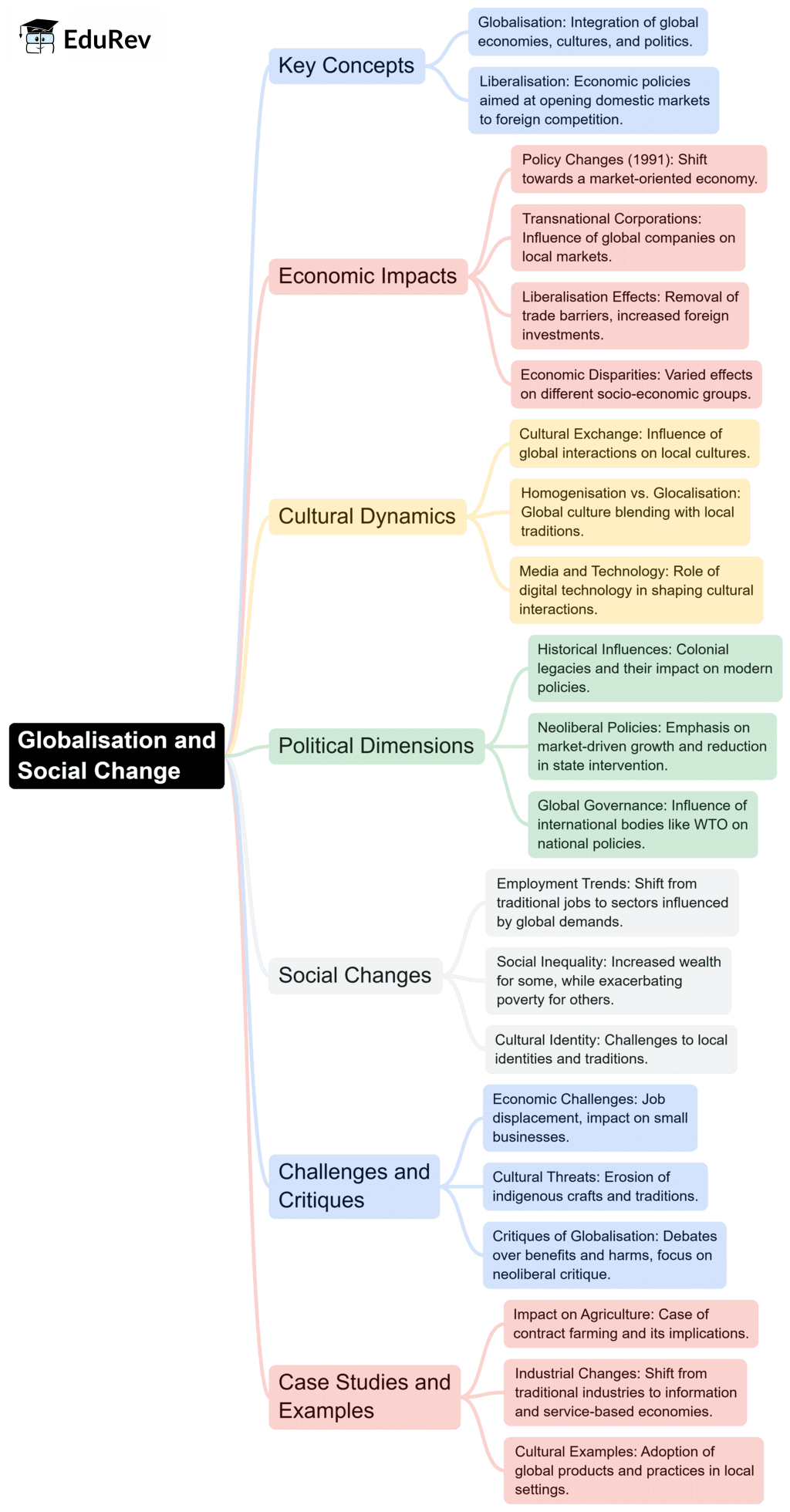Humanities/Arts Exam > Humanities/Arts Notes > Sociology Class 12 > Mind Map: Globalisation and Social Change
Mind Map: Globalisation and Social Change | Sociology Class 12 - Humanities/Arts PDF Download

The document Mind Map: Globalisation and Social Change | Sociology Class 12 - Humanities/Arts is a part of the Humanities/Arts Course Sociology Class 12.
All you need of Humanities/Arts at this link: Humanities/Arts
|
62 videos|157 docs|25 tests
|
FAQs on Mind Map: Globalisation and Social Change - Sociology Class 12 - Humanities/Arts
| 1. What is globalization and how does it affect social change? |  |
Ans.Globalization refers to the process by which businesses, cultures, and economies become interconnected and interdependent on a global scale. This phenomenon leads to social change by influencing cultural norms, economic structures, and social relationships. It can result in the spread of ideas and practices but may also lead to cultural homogenization and the erosion of local traditions.
| 2. What are the positive effects of globalization on society? |  |
Ans.Positive effects of globalization include increased access to information and technology, enhanced cultural exchange, economic growth through trade, and the ability for individuals to connect with others around the world. It can also foster innovation and improve standards of living in developing countries by providing new opportunities for employment and education.
| 3. What are the negative impacts of globalization on local cultures? |  |
Ans.Negative impacts of globalization on local cultures include the dilution of traditional practices and languages, the dominance of Western cultural products, and the potential for economic inequalities to widen. Some communities may struggle to maintain their cultural identity as global brands and trends overshadow local customs and lifestyles.
| 4. How does globalization influence economic inequality? |  |
Ans.Globalization can exacerbate economic inequality by benefiting wealthier countries and individuals at the expense of poorer ones. While it can create jobs and boost economies, the gains are often unevenly distributed, leading to widening income gaps both within and between countries. Those who are already disadvantaged may find it harder to compete in a globalized economy.
| 5. In what ways can individuals and communities respond to globalization? |  |
Ans.Individuals and communities can respond to globalization by promoting local culture and products, advocating for fair trade practices, and engaging in social movements that address global issues such as climate change and labor rights. Education and awareness can empower communities to navigate the challenges posed by globalization while preserving their unique identities.
Related Searches
















